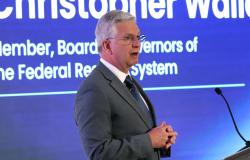In January, Alzheimer’s Disease Awareness Month, the Alzheimer Society Centre-du-Québec is joining forces with the Fédération québécoise des Societes Alzheimer (FQSA) to convey an essential message: “Alzheimer’s disease: the more we knows it early, the less it is too late.”
This campaign aims to raise public awareness of the importance of taking action as soon as the first signs of neurocognitive disorders appear.
Signs that deserve our attention
Up to 50% of people living with a neurocognitive disorder are diagnosed too late in the illness, which deprives them of accessible support from the start of the illness. Difficulty retaining new information, temporal or spatial confusion, objects lost in unusual places: these signs can reveal the beginnings of the disease. Seeing a doctor quickly can make all the difference. Early diagnosis offers several advantages: it makes it possible to identify the cause of symptoms, to take concrete actions aimed at maintaining abilities and to access resources to maintain a good quality of life.
A new platform to support you
The FQSA is proud to announce the launch of Enparlertot.ca, a site dedicated to informing Quebecers who are concerned about their cognitive health. This site offers tools for recognizing warning signs, advice for preparing for a medical consultation, as well as information on the diagnostic process.
Personalized support
“In order to better guide and support the 24,000 people in Centre-du-Québec, affected directly or indirectly by the disease, a new means of access to our services will soon be available. Details will follow shortly, but this addition to our current team will simplify access to the necessary resources and improve understanding of the service trajectory throughout the entire disease cycle,” says Valérie Richier, Executive Director of the Alzheimer Society. Central Quebec.
By contacting the Alzheimer Centre-du-Québec Society, people living with the disease and their loved ones can access information and training to live better with the disease, support to break isolation, respite services. -stimulation throughout the journey with the illness as well as suitable accommodation.
Alzheimer’s Disease: Demystifying the Early Phase – A Free Virtual Conference
The FQSA invites you to a unique conference on January 23 at 12 p.m. Sven Joubert, PhD, director of the Neuropsychology of Aging Laboratory at the Research Center of the University Institute of Geriatrics of Montreal (CRIUGM), and Dr. Thomas Tannou, geriatrician and researcher at the University Institute of Geriatrics of Montreal (IUGM), will be aimed at health professionals as well as the general public. They will highlight the first manifestations of Alzheimer’s disease, which are often neglected. For more information on this conference, go to alzheimerquebec.ca.
Alzheimer’s disease: prevention of Alzheimer’s disease – A free conference
The Alzheimer Centre-du-Québec Society also invites you to a very popular conference on January 22 at 1:30 p.m. In partnership with the FADOQ club in Plessisville, caregiver advisors, Audrey Brochu and Mélissa Lampron, will share the various ways of reduce modifiable risk factors to delay a diagnosis in 40% of cases. For more information on this conference, visit alzheimer.ca/centreduquebec.
To receive support, dial 819 604-7711, extension 1, for the Victoriaville service point and 819 474-3666, extension 223, for the Drummondville service point.
About the Alzheimer Society Centre-du-Québec
The Alzheimer Centre-du-Québec Society, a non-profit organization, has the mission of welcoming, supporting and offering services to people living with Alzheimer’s disease or another neurocognitive disorder, as well as to their close caregivers. As a reference in Centre-du-Quebec, we raise awareness in the community of good practices and direct people to appropriate resources to improve the quality of life for all.






